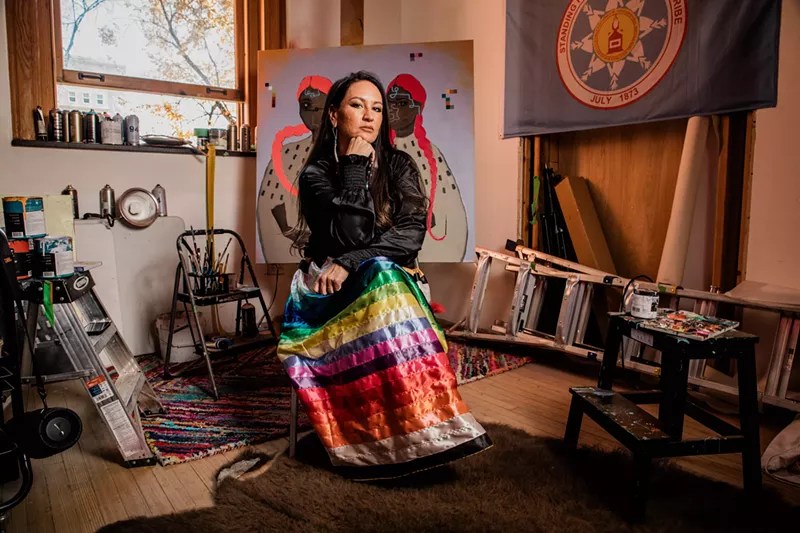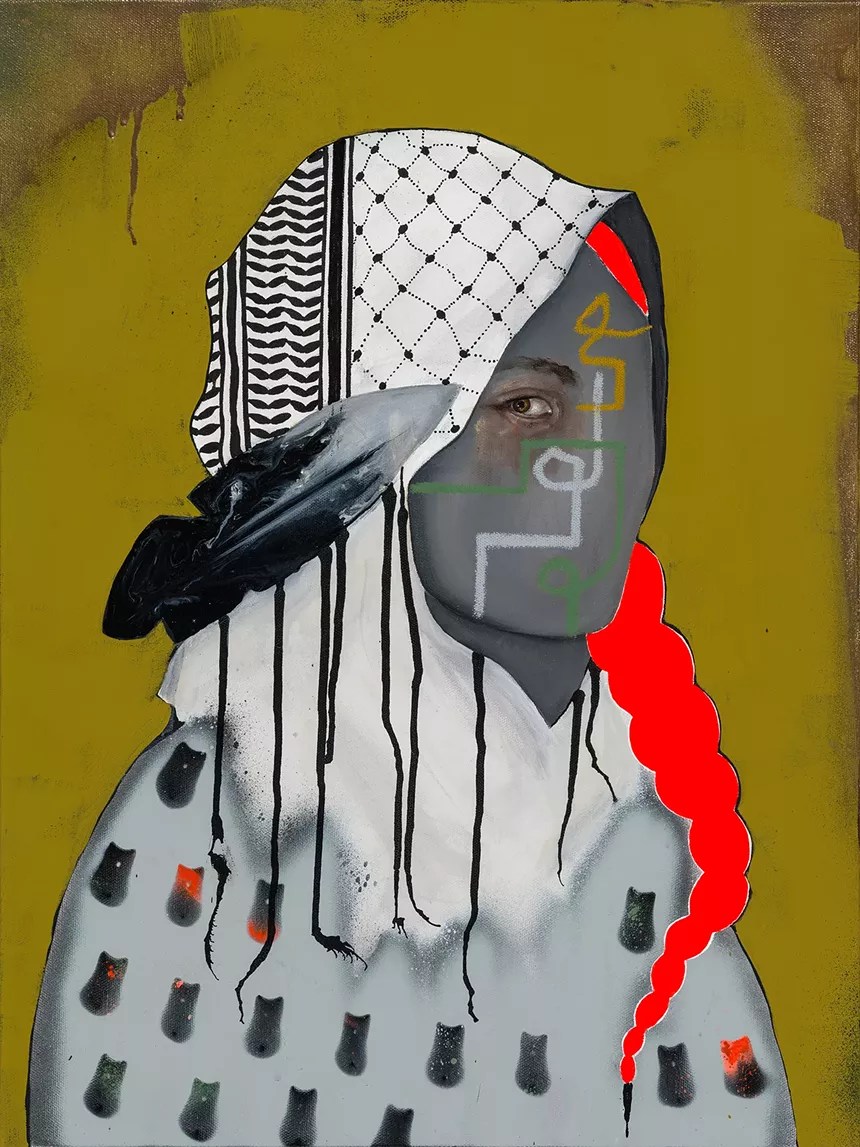
Christian Hundley

Audio By Carbonatix
“I think my whole existence is very political, in a way, because we weren’t supposed to be here,” Danielle SeeWalker, a HúÅ‹kpapÈŸa LakÈŸóta and a citizen of the Standing Rock Sioux tribe in North Dakota, told us last fall. “I believe it to be speaking up through my art. You need to tell our stories. You need to speak up. You need to bring narratives from an Indigenous perspective and put it out there. Because you don’t often hear those sides of the narrative of history.”
SeeWalker spoke up a lot last year, after the Town of Vail removed SeeWalker from its Art in Public Places residency program in response to a picture she posted of a mixed-media piece she’d created months earlier relating the tragedies of American Indians and Palestinians, titled “G Is for Genocide.” Represented by the ACLU, SeeWalker filed a civil complaint against Vail in October, charging that the town had violated her free speech rights.
Now that lawsuit has been settled, with Vail agreeing to fund a new art program for underrepresented and economically disadvantaged people, including people of Native American ancestry. The town will also host a powwow to be organized by SeeWalker at the Donovan Pavilion annually for the next five years; pay for a non-public community forum on Israel and Palestine that includes members of Vail’s Jewish community, Palestinian community, Muslim community and other faith and community leaders; and provide annual cultural sensitivity training to employees in the Arts and Public Places Department for the next five years by an Indigenous-led organization.
“This settlement shows that the government cannot get away with violating the First Amendment by retaliating because of speech it does not like,” Tim Macdonald, legal director of ACLU of Colorado, said in an announcement of the settlement. “Vail cancelled Ms. SeeWalker’s artist in residency because of the viewpoint of her speech. This action follows a long pattern of suppressing and censoring the voices of Native American people, but Ms. SeeWalker bravely said ‘not this time,’ and this settlement shows that individuals pushing back can make a difference.”

Danielle SeeWalker’s “G is for Genocide.”
Danielle SeeWalker
“While Vail has not formally or publicly apologized for the cancellation of my artist residency and the subsequent harm the cancellation has caused me, I think the fact that they have agreed to this settlement and these important policy changes shows the town of Vail knew they were in the wrong. I was unfairly censored and characterized as anti-Semitic and that could not be further from the truth,” added SeeWalker. “I am hopeful that through this experience, positive change for future underrepresented creatives, such as Native American artists, will have a better experience with the town of Vail in the future and that is what the heart of the settlement was all about for me.”
In addition to Macdonald, the legal team included ACLU Senior Staff Attorney Sara Neel as well as Andy McNulty, Mari Newman and Madeline Leibin of the Newman McNulty firm. 
SeeWalker’s lawsuit was filed on Indigenous Peoples Day, an intentional decision.
“Indigenous voices have been censored for generations,” she told Westword last fall. “My perspective on it is that it has to stop, and if I don’t speak up on it, who’s going to do it for me? Vail and other local governments need to know that they can’t deny constitutional rights of artists or humans in general.”